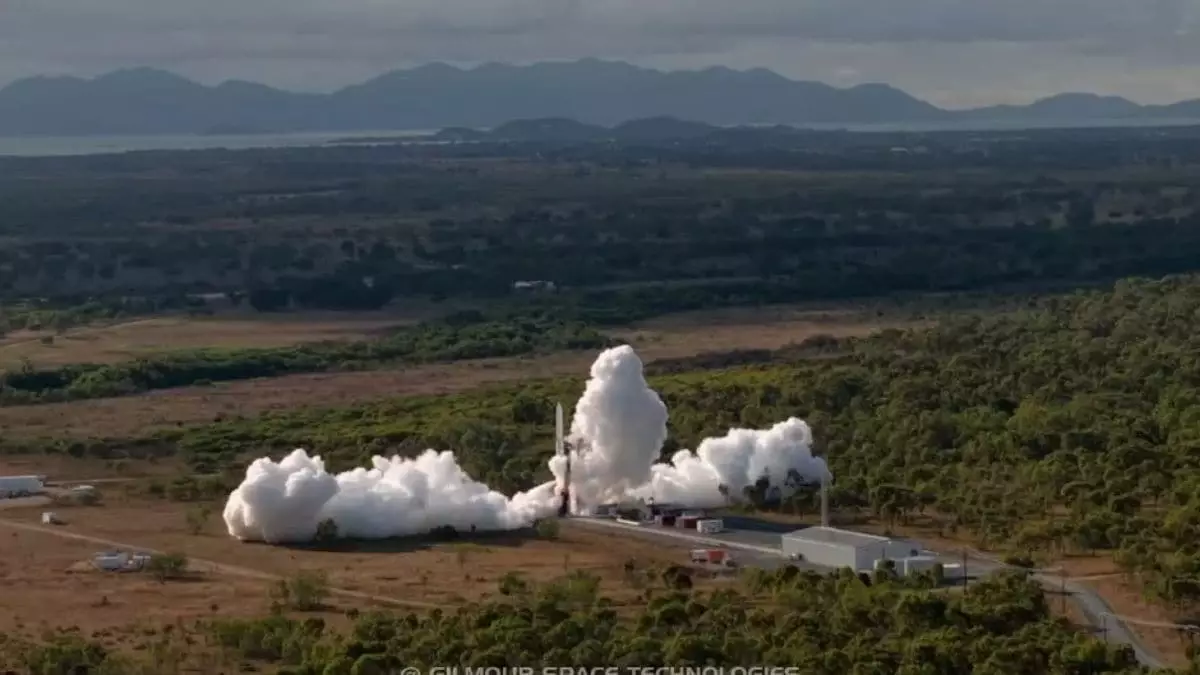Australia has long been a nation eager to carve out its place among the spacefaring powers of the world. The recent launch of the Eris rocket, crafted entirely within the country, was heralded as a landmark achievement—yet it ultimately ended in disappointment. This event, while technically a failure, offers a critical opportunity to reflect not just on technological capacity but also on the resilience and foresight of Australia’s burgeoning space industry. The crash after just 14 seconds of flight speaks volumes about the necessary groundwork still to be laid before national ambitions are realized. It’s a sobering reminder that pioneering space endeavors often entail steep learning curves and that overconfidence in quick wins can obscure the arduous process of mastery.
The Cost of Overenthusiasm and Underpreparedness
Gilmour Space’s attempt on July 29, 2025, was nothing short of a gamble. Framed by optimism, the company and its founders, brothers Adam and James Gilmour, disparagingly risked fostering a false narrative—that success could come swiftly—while dismissing the complexity of orbital mechanics, the unpredictability of weather, and the unforeseen technical pitfalls. The persistent delays due to tropical cyclone Alfred, payload fairing failures attributed to technical glitches, and weather constraints all highlight a recurring theme in small-scale space ventures: a pattern of overpromising and underdelivering. These setbacks are emblematic of a broader truth, often ignored in national dialogues: innovation in space is rarely linear. It demands patience, robust infrastructure, and a recognition of the limitations these modest but proud national efforts face.
The Flaws of Complacency and the Need for Critical Self-Analysis
One of the most troubling aspects of Australia’s recent effort isn’t solely the crash, but the narrative surrounding it. Gilmour Space emphasized that the mission’s value lay in “valuable data” rather than outright success. While this mindset is commendable, it also risks veering dangerously close to complacency—treating failure as an acceptable part of the process rather than an urgent cue for introspection. This kind of attitude can hinder the urgency needed to push for more rigorous testing, better engineering, and strategic planning. Maintaining a critical lens toward one’s own failures is vital, especially in a domain as unforgiving as spaceflight, where superficial improvements can lead to catastrophic outcomes if not relentlessly scrutinized.
The Broader Implications: A Nation at a Crossroads
Australia’s foray into space reflects a symbolic desire for independence and technological sovereignty. Yet, this recent setback underscores the disparities between aspiration and capability. The fact that the country’s first orbital launch ended so swiftly and spectacularly exposes the risks of prematurely celebrating milestones that are only partly achieved. It is essential for Australia—and other smaller space nations—to realize that the true value lies in persistence and humble acknowledgment of existing gaps. Building a credible space presence requires more than ambitious goals; it demands sustained investment, rigorous technical development, and a willingness to confront uncomfortable truths about progress.
Editorial Bias and a Call for Realism
From a centrist-liberal perspective, it’s crucial to balance optimism with realism. While the enthusiasm of Gilmour Space and other Australian innovators is admirable, glossing over failures can set unrealistic expectations. Governments and private companies alike must prioritize transparency and a critical review of technical setbacks. Celebrating failure as a necessary step is healthy, but only if it leads to meaningful change rather than complacency. Federal and regional policies should foster an environment where failure is critically analyzed, and lessons are genuinely integrated into future plans. If Australia is truly interested in becoming a meaningful player in the space industry, policymakers must temper dreams with pragmatic strategies that reflect the reality of technological advancement.
Australia’s recent launch serves as an essential wake-up call. It reveals the gaps between aspiration and execution and highlights the importance of humility in the pursuit of technological greatness. Progress in space is less about fleeting milestones and more about relentless improvement, critical self-awareness, and resilient determination. Only with these qualities can Australia transition from a hopeful novice into a resilient, innovative space nation capable of meaningful contributions—and perhaps, one day, independence—among the stars.


Leave a Reply